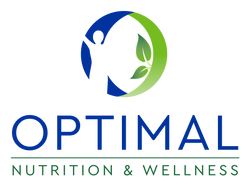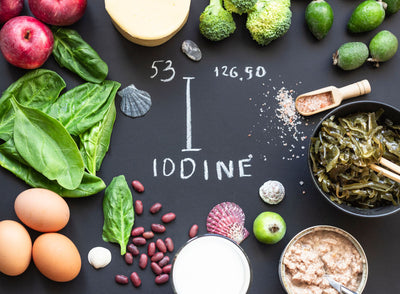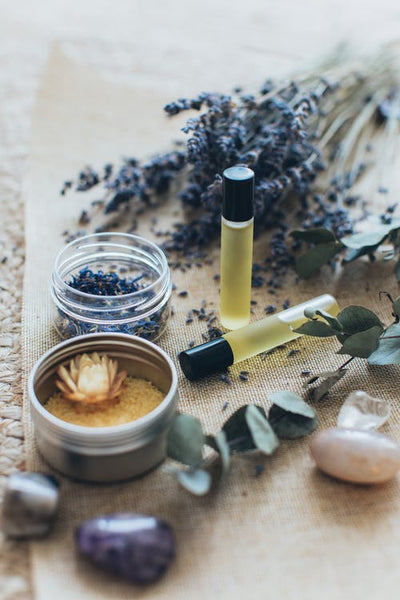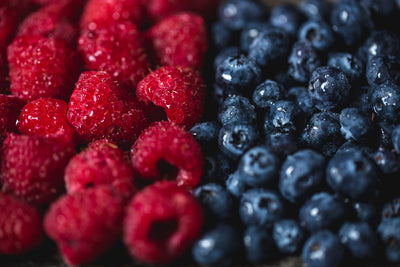Elderberries, red and white onions, cranberry juice, capers, tomatoes, red wine, unsweetened cocoa powder, kale, cherries, green and black teas, raspberries, apples, pears, coffee, parsley, and spinach. If you were asked what common nutrient these foods share, would you know? Certainly you might be able to identify some of the foods as rich in antioxidants and anti-inflammatory qualities, but most of us would not know that each of these contain an awesome flavonoid called Quercetin. Flavonoids are substances that give fruits and vegetables their color, and Quercetin is one of the most prevalent color compounds found in nature’s bounty.
Because Quercetin provides such a wide array of benefits, it is difficult to cover in any detail all it can do in one short blog. Hence, today we’ll be taking a “helicoptoric tour” of just some of its most notable benefits for our health. We think you’ll be amazed that one little flavonoid can do so much.
Quercetin is an excellent antioxidant as well as an anti-inflammatory and helps support a healthy immune system. It can improve our histamine response and promote a healthy respiratory system. It is believed to be neuro-protective for our brains and helps our spinal cords recover from injury. It is a broad spectrum anti-viral. It also shows anticarcinogenic abilities. It works synergistically with Bromelain to provide amazing anti-inflammatory benefits. It works synergistically with Vitamin C as well.
According to Dr. Mercola, Dr. Paul Marik recently co-authored a review article called “Quercetin and Vitamin C: An Experimental, Synergistic Therapy for the Prevention and Treament of SARS-CoV-2 Related Disease (COVID 19) in Frontiers In Immunology. The article stated, “There is evidence that Vitamin C and Quercetin co-administration exerts a synergistic antiviral action due to overlapping antiviral and immunomodulatory properties and the capacity of ascorbate to recycle Quercetin, increasing its efficacy.”
It’s nice to throw out all those broad terms of what Quercetin can do. But you might be asking, “What’s in it for me?” Good question. Take a look at the following list. It's by no means exhaustive, but we guarantee there will be something on it to pique your interest.
- Quercetin may protect against heart disease and promote a healthy circulatory system. It is believed to reduce the risk of atherosclerosis, reduce stress on the heart, lower blood pressure, promote a healthy blood lipid profile, and destroy excess cholesterol. It is known to have a vasodilator effect. Not bad for starters, right?
- Quercetin strengthens the immune system by protecting white blood cells. It’s anti-oxidant abilities protect cells from free-radical damage so healthy cells do not become altered. Quercetin also protects the body from stress by suppressing an enzyme necessary for cortisol release. With less stress the immune system can stay strong.
- Quercetin may help reduce allergy symptoms of watery eyes, stuffy nose and swelling in the face by lowering our histamine response. It has a bronchial dilating effect by relaxing the smooth muscle in the airway. Asthmatics may see improvement in their symptoms with the use of Quercetin. Quercetin combined with Bromelain and NAC can be especially helpful with allergies.
- Quercetin can help alleviate symptoms of acute bacterial prostatitis, chronic bacterial prostatitis and chronic non-bacterial prostatitis by reducing inflammation in the prostate.
- Quercetin may help to alleviate symptoms of interstitial cystitis.
- Quercetin can help lower risks of several kinds of cancer including prostate, breast, leukemia, ovarian, endometrial, bladder and colorectal. It is thought to deactivate enzymes that help cancer cells to grow. It can also be combined with chemo-therapeutic drugs to improve clinical outcomes of prostate cancer patients according to Ben’s Natural Health newsletter.
- Research indicates Quercetin can address viruses caused by influenza, dengue, and now SARS-Co-2 which causes COVID 19. It is believed to bind to the spike protein of SARS-CoV-2 inhibiting it from infecting human cells.
- Research also indicates that Quercetin is an ionophore for Zinc meaning it helps Zinc pass through the cell wall to halt the replication of a virus. Chloroquine and Hydroxychloroquine work as Zinc ionophores in a similar fashion. Quercetin does not have the side effects associated with these other drugs. It is believed that the earlier one can get Quercetin and Zinc in their body with COVID 19, the easier it is to arrest the illness.
- Quercetin may help protect the Central Nervous System from damage through its antioxidant and anti-inflammatory properties. Through the protection of neurons, it can potentially address cognitive decline such as Alzheimers and dementia. An article on Quercetin by Dr. Jockers states, “Quercetin has been shown to provide protection from the degeneration of neurons resulting from traumatic injury, ischemia (the restriction of blood flow to the heart) as well as heavy metal exposure. Studies performed in animals with spinal cord injury found that Quercetin treatment improved the motor function of the animals following the injury.” More studies are needed to evaluate proper dosages and outcomes in humans.
- Because of its anti-inflammatory potential, Quercetin potentially can help lower blood sugar levels.
- Quercetin may lower the risk of osteoporosis by influencing the behavior of osteoblasts and osteoclasts.
- Quercetin may help alleviate symptoms of Chronic Fatique Syndrome.
- Quercetin may improve energy, performance, and endurance levels.
Eating foods containing Quercetin is by far the best way to get this powerful flavonoid, but sadly the typical American adult diet often is depleted in fresh fruits and vegetables. It is estimated the average person gets between 30-50 mg per day of Quercetin in their diet. The list at the beginning of this blog is not by any means all inclusive of foods containing Quercetin, but it gives you a good idea of the variety. An easy internet search can give you a more exhaustive list.
Sometimes supplementation is warranted. Quercetin can be found as a single supplement, but often it is combined with Bromelain for that synergistic anti-inflammatory affect.
500 mg per day would be our recommendation for supplementation for a healthy individual with no contraindications. If you are currently taking Zinc, we recommend you take the two together. If you become ill with COVID 19 or any other virus, we recommend immediately taking 1,000 mg of Quercetin IN SPLIT DOSAGES several times a day along with Zinc (up to 100 mg) in split dosages also. The idea is to use Quercetin to drive Zinc deep into the cell to stop the viral replication throughout your day or at the very least morning and night while fighting a virus.
We should all be aware there are contraindications for using Quercetin. Below is a list to consider.
- It is not suggested for use in children.
- It has not been tested for safety during pregnancy and while breastfeeding.
- It should not be taken by those with kidney disease.
- Quercetin is contraindicated for those taking antibiotics (decreases effectiveness), blood thinners (enhances your risk for bleeding), calcium channel blockers for hypertension, corticosteroids (can cause these to stay in your system longer), chemotherapy (talk with your oncologist), floroquinolones (reduced effectiveness), Digoxin, Cyclosporin (suppress the immune system), and medicines activated/altered by the liver (may change how drug is metabolized). If you have questions about your medications and Quercetin, please consult your health care provider.
While Quercetin is considered a very safe supplement to take, there can be side effects. The two most typical side effects are headaches and stomach aches (either acid reflux or heart burn), generally when taken at high dosages.
Much research has been done already on Quercetin with more forthcoming because of the potential it offers for COVID-19. As with most other nutrients, Quercetin has a beautiful systemic effect, playing in concert with other nutrients from whole foods. An apple a day might not be quite enough to keep the doctor away, but with each bite of apple (or most any fruit) you are well on your way to protecting your body with this little Jack of All Trades called Quercetin.







1 comment
Love this post on Quercetin…My 2022 add lots more Quercetin! Thanks for the great info @carrieraboud